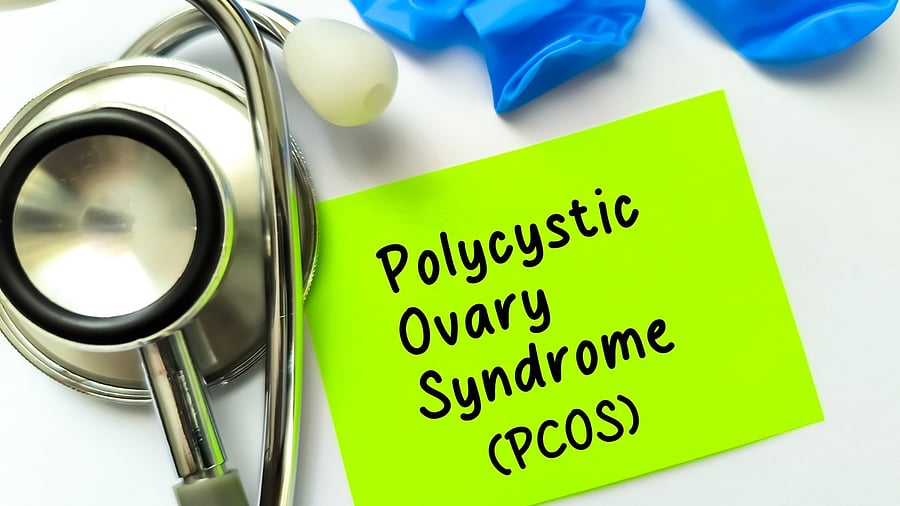
PCOS or Polycystic ovary syndrome.
Credit: iStock
New Delhi: As September marks PCOS Awareness Month, experts have voiced concern over its growing prevalence and impact on women's health, especially as stigma and lack of awareness delay diagnosis.
Globally, polycystic ovary syndrome (PCOS) affects 6-26 per cent of women, and in India, nearly 1 in 5 young women. Despite being among the most common hormonal disorders, it often goes undiagnosed. Alarmingly, nearly 70 per cent of cases remain unidentified, experts said.
PCOS is a hormonal disorder causing irregular periods, weight gain, acne, excess hair growth and infertility.
Often marked by fluid-filled sacs on the ovaries, it extends beyond reproductive issues, increasing risks of insulin resistance, type 2 diabetes, cardiovascular disease, and even endometrial cancer.
Dr Yashica Gudesar, Director and unit head, Obstetrics and Gynaecology, at the Max Super Speciality Hospital in Dwarka, said that PCOS is one of the most widespread endocrine disorders among women of reproductive age. "In India, stigma and lack of awareness delay diagnosis," she said.
With early screening and timely lifestyle interventions, many severe complications can be prevented, Dr Gudesar underlined.
PCOS has strong links to low-grade inflammation along with genetic, environmental and lifestyle factors, she said.
While family history raises susceptibility, poor diet, inactivity, stress and obesity can trigger or worsen symptoms.
"Treatment is always tailored to the individual -- since not all women with PCOS need medical therapy. In many cases, lifestyle modification alone can be transformative, while medications are used only when specific symptoms, such as infertility, irregular cycles, or excess hair growth, need to be addressed," Dr Gudesar stated.
Dr Swapnil Agrahari, a gynaecologist at Silverstreak Multispeciality Hospital, said, "PCOS needs a multi-pronged approach -- medical care alongside lifestyle changes like exercise, diet, and stress management. It should be seen not just as a reproductive disorder but as a chronic condition with wide-ranging health impacts."
Experts emphasise that beyond physical health, PCOS also exerts a toll on mental health, leading to anxiety, depression and social stress. The stigma surrounding women's reproductive health in India further delays conversations and diagnosis.
Dr Astha Dayal, Director, Obstetrics and Gynaecology department at CK Birla Hospital in Gurgaon, said, "As a gynaecologist practising in Gurugram, I see PCOS rising sharply among young women, especially in metros due to stress, poor diet, and sedentary lifestyles.
"Early awareness and lifestyle changes -- not just medication -- are key to preventing long-term complications and protecting women's health."
As India already battles the burden of non-communicable diseases like diabetes and hypertension, the growing prevalence of PCOS poses a serious public health challenge.
Doctors and health advocates are calling for greater awareness campaigns, nationwide screening programmes and integrated treatment approaches that address physical, emotional, and lifestyle dimensions of the disorder.
Experts urged the women to seek timely medical advice, break the stigma around reproductive health, and adopt preventive measures early.
Only through awareness, early diagnosis, and holistic care can India effectively address the growing PCOS burden, they said.